|
Website Help
This guide will help you best navigate my website, which has more depth than an initial viewing would suggest. On mobile devices, certain elements adapt to provide a mobile-friendly experience. The site is equally navigable in landscape orientation as it would be on a desktop or laptop device; however, popups translate poorly to mobile viewing owing to technical limitations. 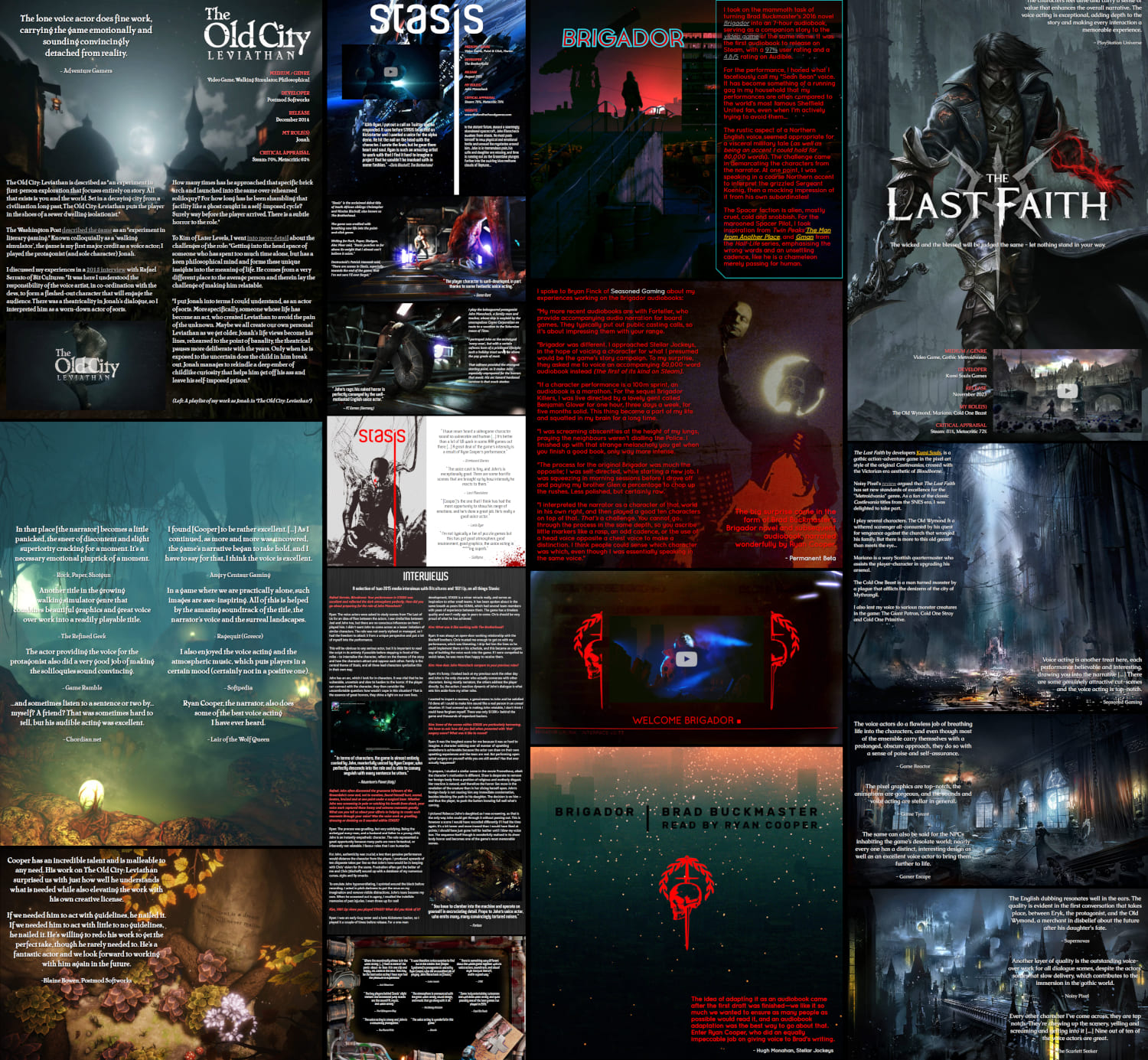 Above: The top bar remains fixed at the top of the screen, providing the user with a handy access terminal. Clicking the "Ryan Cooper" banner in the top-left scrolls back to the top of the page; within this Blog, doing so takes you back to the main page. The centre icons link to my email address, IMDb, Twitter and YouTube pages respectively. To the right, the Blog button brings you here (natch) and the Résumé button scrolls to the Résumé section of the page. These auto-scroll buttons are especially handy when browsing in Full View mode.  Above: An embedded video player of my latest general demo reel, featuring a variety of vocal styles, accents and tones.  Above: Embedded video playlists showcasing my work in fully released projects (left), and my work in upcoming or Early Access projects (right). Both are ranked by newest releases first.  Above: A rotating selection of testimonials from clients and notable figures online. Entries change every 20 seconds, but you can manually browse by clicking the white circles beneath.  Above: The head of the Résumé section; you will be returned here by clicking the Résumé button in the topbar. Includes a recent headshot and a brief overview of what I bring as an actor, including my specialities and setup. The Open as PDF button opens a one-page PDF Résumé - useful for prospective clients to download for their consideration.  Above: Résumé entries as they appear by default (Grid View). Grid View groups entries into: 1) Major credits (newest first). 2) Miscellaneous credits. 3) Upcoming projects. Click the character name (2nd line) to be taken directly to a demo video on YouTube. Click the client name (3rd line) to visit their website. Clicking either the image or title opens a popup with more details about my experiences on the project. Popups are initially hidden and only become visible when triggered. Here are a few examples of what popups look like when opened:   Above: List View offers a traditional résumé layout, grouped into categories: Video Games, Audiobooks, Shorts, and Upcoming Work — each ordered in most recent chronological order. As with Grid View, click the project title for a detailed popup, or click the name of the character or the client to be taken directly to a demo video or to the client's website, respectively.  Above: Full View displays all expanded popup entries as one block, in reverse chronological order. This allows the user to browse projects in greater depth without the need to click each popup individually. Use the Résumé button in the top bar to return to the head of the section. CHANGE LOG (19/08/24) Initial submission. (29/09/24) Mobile section added. (17/04/25) Converted to a full Website navigation section. Interview with Seasoned Gaming
It's been a while, but I have another interview with a video game outlet to bring to you. In the link below, I chat with Bryan Finck of Seasoned Gaming about all things voice acting, including the hot-button issue of artificial intelligence, the process of building a character, working with indie developers, and more. Also, check out my previous interviews back in 2015 with Rafael Serrato of Bit Cultures, and Kim of Later Levels.
CHANGE LOG
(06/03/24) Initial submission. Ten Years Later...
It occurred to me lately that I have been at this for over a decade. I am an avid Football / Soccer player. On the pitch back in 2013, I suffered a bad tear of the anterior cruciate ligament in my knee. They say boredom sparks creativity, and that is certainly true in my case. I had dabbled in silly microphone recordings with my brothers and friends as a bairn, but providence had given me an opportunity to pursue voice acting in earnest. I first tried out for the Elder Scrolls V: Skyrim total conversion mod Skywind, with which to this day, I am still actively involved. My first credit was that September: a two-minute skit for a YouTube channel with less than 200 combined views; I now have forty projects and some eighty credits to my name. Circa 2015 was a particularly purple patch. I went from solitary actor in The Old City: Leviathan (a game that caught the eye of the Washington Post), to voicing for Kholat starring Sean Bean, then to one of my career best performances as John Maracheck in Stasis, before voicing the audiobook for Brigador which gained a cult following. Recently, I have enjoyed roles in ‘Metroidvanias’ The Last Faith and Ghost Song, and the horror game MADiSON, which was rated the scariest ever game in a study of players’ heart rates! 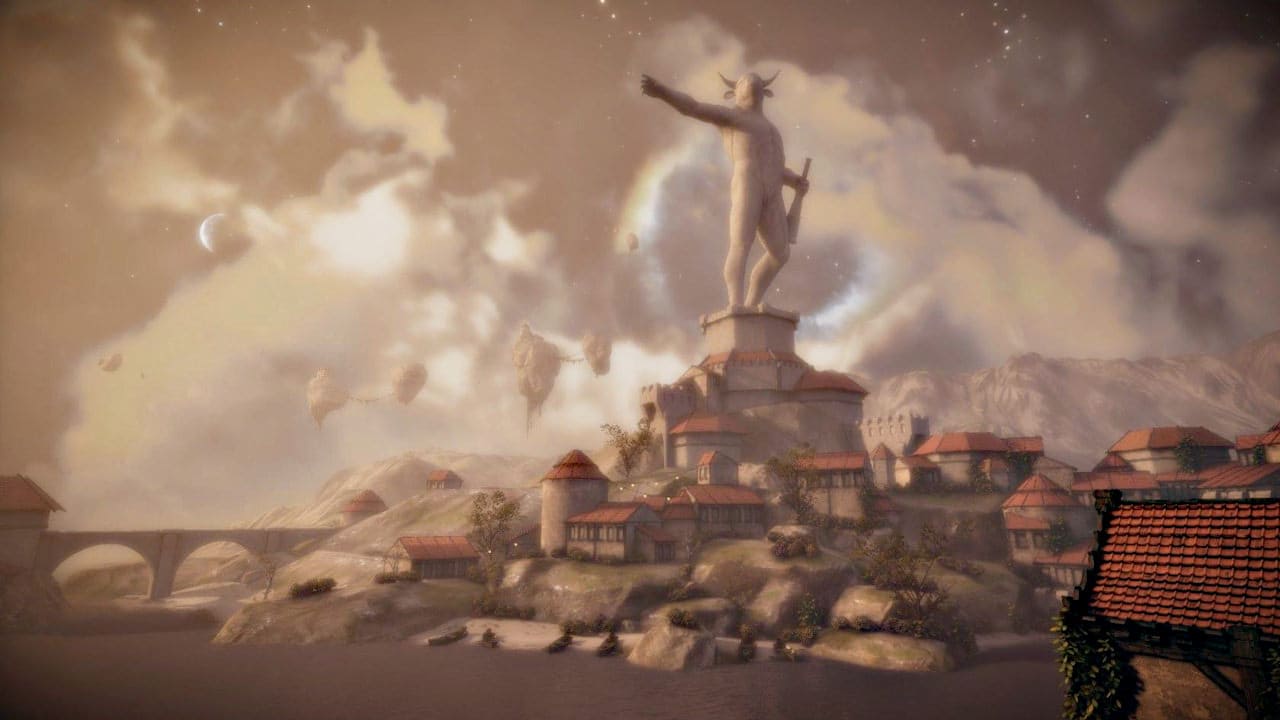 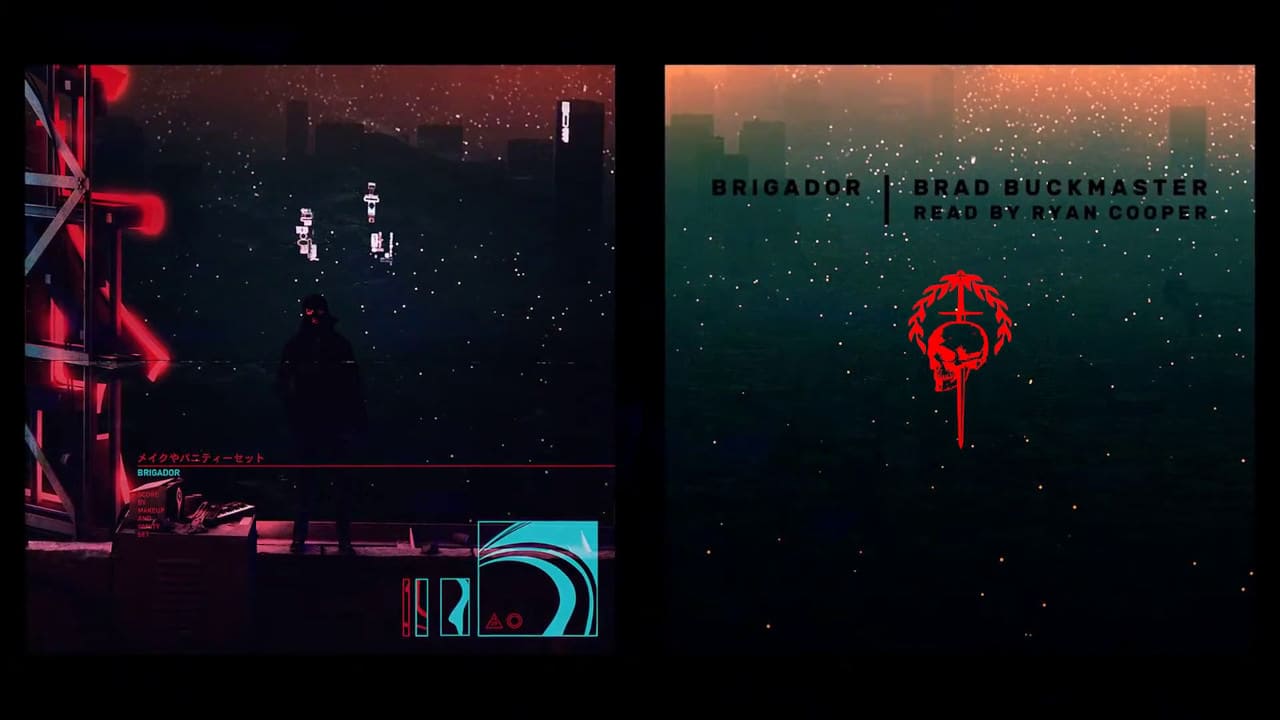 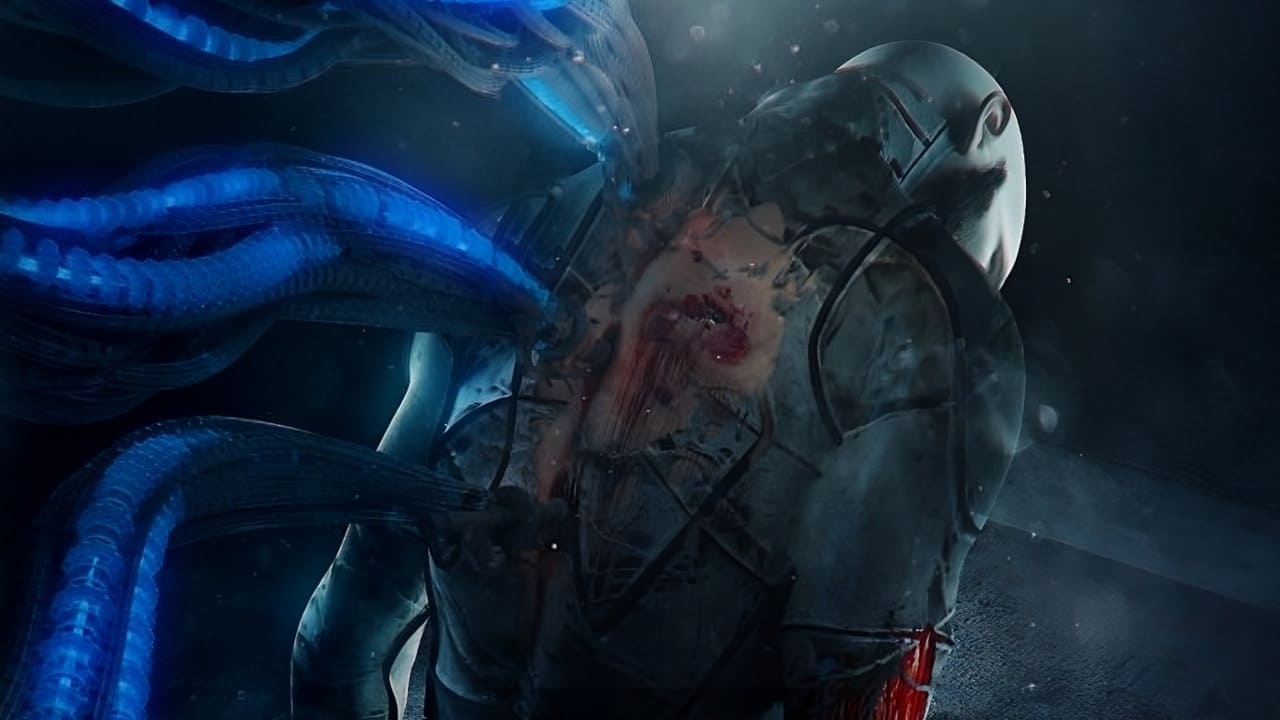 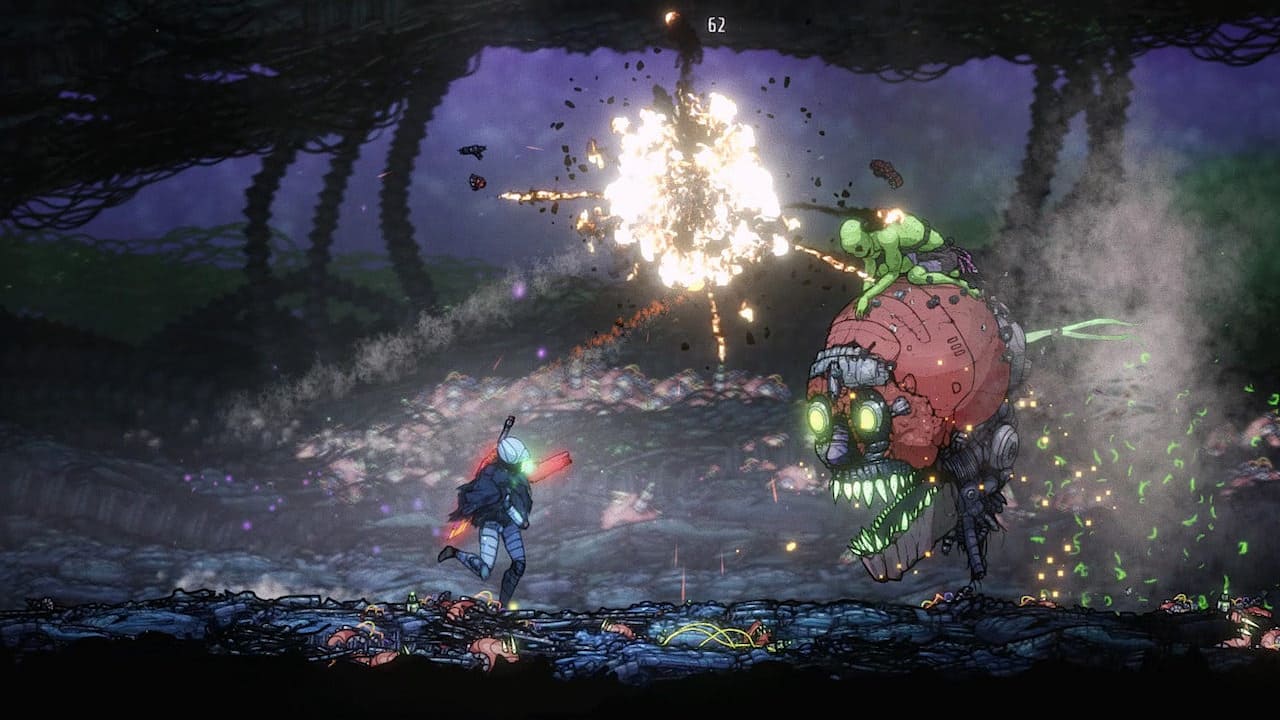 Above (from top-left to bottom-right): Promotional art and in-game stills from The Old City: Leviathan, Brigador, Stasis and Ghost Song. I’ve worked with some truly dedicated and skilful professionals these past ten years. From Ghost Song solo developer Matt White, to the talented folk at Stellar Jockeys, like the Monahans and Benjamin Glover. I would especially like to voice my gratitude to Chris and Nic Bischoff of The Brotherhood, who gave a platform to me as a rookie to pour everything I had into the lead role for their debut game Stasis. I would not have blamed them for replacing me after securing over $130,000 in Kickstarter funding, but they chose instead to give me a chance. It still makes me chuckle from time to time to think I have worked on the same projects as industry greats like Sean Bean and Mick Gordon! What does the future hold? Well, there is every chance I will go full time in the next year. I have recorded the sequel to the Brigador audiobook, titled Brigador Killers. Author Brad Buckmaster reveals in the foreword that he was in a dark place when he wrote it, and there are parts of this story that frankly make the original look like the Teletubbies. I am also attached to the sci-fi FPS ExeKiller by Paradark, medieval Zombie game Blight: Survival by Haenir, and as the lead in point-and-click puzzle-horror Utopia Syndrome by the insanely talented Andrew Averkin. 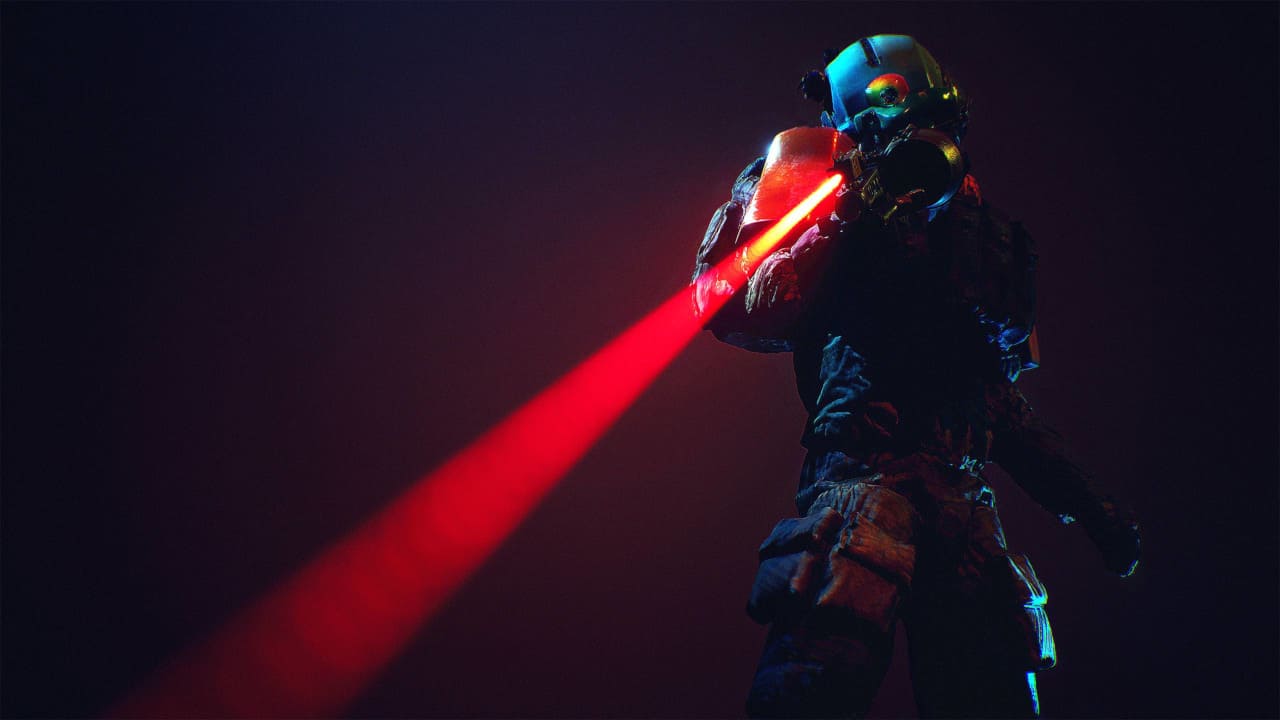 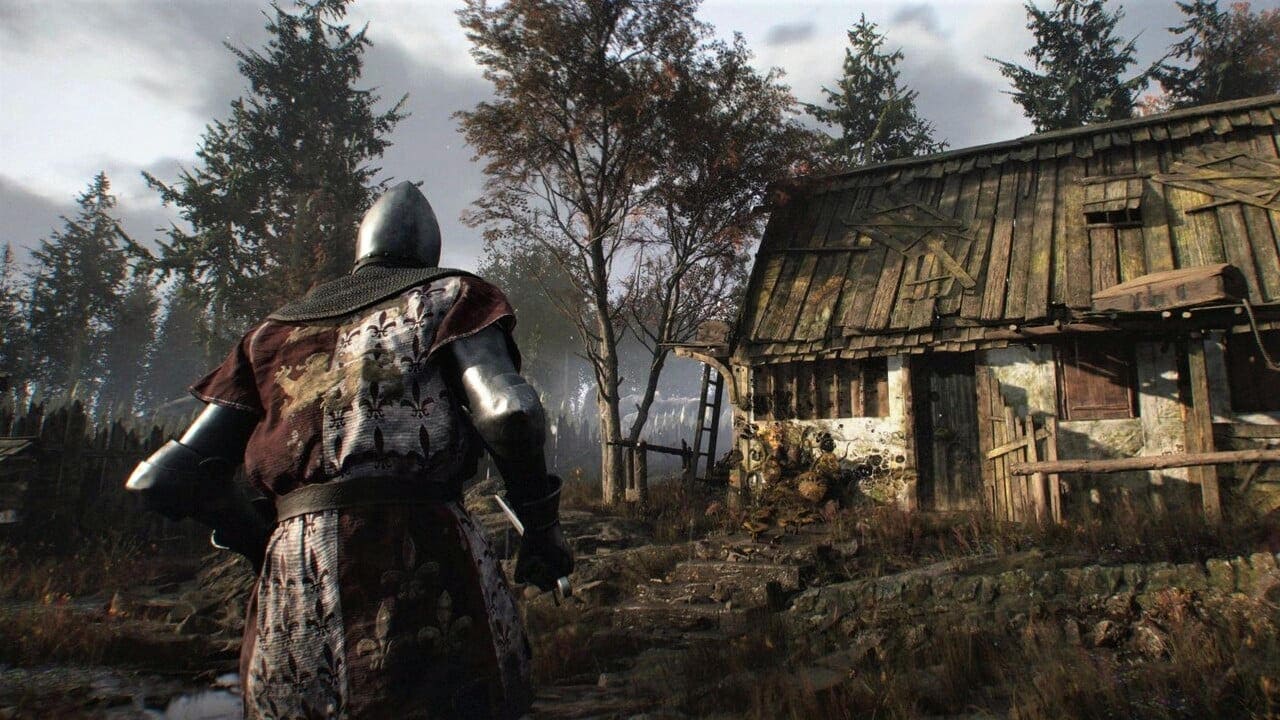  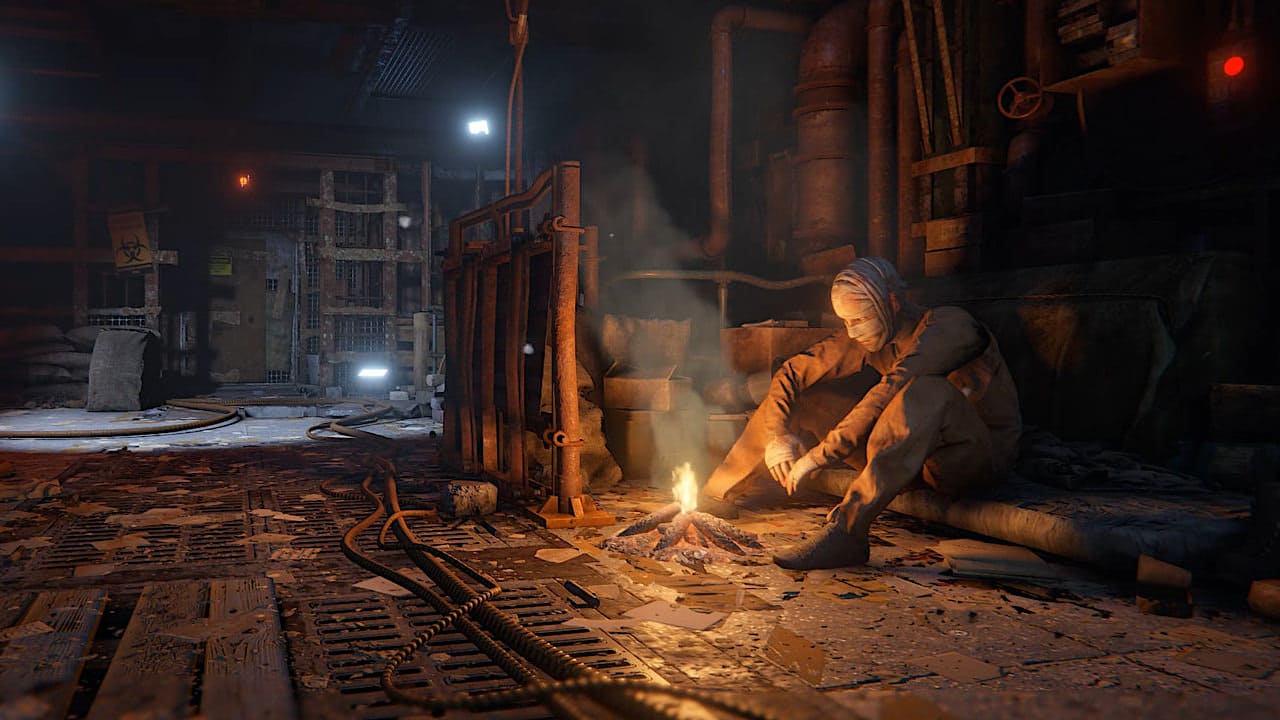 Above (from top-left to bottom-right): Promotional art and in-game stills from Brigador Killers, Blight: Survival, ExeKiller
and Utopia Syndrome. I will also feature as Scottish squaddie Chaucer in tactical shooter Ozark, play multiple characters in the colourful action-RPG Forsaken Realms: Vahrin's Call, narrate for apocalyptic political thriller Glasshouse, as well as continue my long-running association with HELM Systems on their dark fantasy game The Soulkeeper, to name but a few projects. Here’s to another decade! CHANGE LOG (29/11/23) Initial submission. (04/12/23) Concept art / in-game stills added. The Magic of Indie Music
I am blessed not only to have been involved in projects with supremely talented and devoted game developers, but some absolutely belting original soundtracks. I thought I'd give props to all those world-class composers in a playlist below, which is subject to change as I add more. Click on the composers' names for links to their portfolios: CHANGE LOG (13/04/23) Initial submission. (14/03/24) Added additional tracks from "The Last Faith OST". Artificial Intelligence in Voice Acting
After hearing much hype about the looming extinction of voice artists owing to our future robot overlords, I decided to subscribe to Eleven Labs to see if it could clone my voice convincingly before pondering (AI-proof) pastures new. I selected my performance as Yagrum Bagarn for Camelworks as a test run, because I’d like to think it is a textured role that conveys pathos, but also curiosity, hope, nostalgia, sickness and brain damage. There’s a lot going on at once, so I wanted to test Eleven Labs to the limit. I gave the AI 22 minutes of high-quality, clean WAV audio recorded in an acoustically treated studio. This is the AI’s ‘attempt’ to replicate my example: It barely sounds human, let alone a convincing clone. Next, I tested my Dunmer voice for the Skywind project to see how the AI handled a bit of gravel. This time, I gave the AI my entire recording for the Tharer Rotheloth character (~24 minutes). Here is the attempt: Not only is the rasp entirely absent, the AI curiously gave me a quasi-American dialect; I explicitly tagged the accent as English. It sounds nothing like me nor the Morrowind Dunmer, to the point that I suspect the rasp broke the AI completely. Okay, maybe the AI struggles with ‘novelty’ voices? So, I fed it 15 minutes from my recent performance for the indie game "Lunacy: Saint Rhodes", which is little more than a basic, clearly enunciated Midwest American voice. Here is my example, and what Eleven Labs churned out: Marginally better. You can at least hear similar intonations, but it's artificial and unconvincing. You may also have noticed background noise between sentences, which for me is so pronounced it would render the take unusable for a professional production. See the waveform:  The AI produced such poor results because the algorithm cannot understand the distinct emotions or character motivations that drive a performance. Nor can it understand the importance of pausing, stutters and cadence that humanises any given performance. As a follow-up experiment, I replicated Dagoth Ur's voice based on the "Argonian Nerevarine" video to see how much heavy lifting a human had to do in post-production to make the Dagoth meme videos work. Eleven Labs only offers two control points: "Clarity + Similarity Enhancement", and "Stability". Reducing the former lessens background artifacts at the expense of accuracy. I kept this at default for the purposes of the experiment, and produced four versions based on the Stability settings of 75%, then 50%, 25% and 0%. It's worth a listen to just to hear how increasingly high the original voice actor Jeff Baker sounds with each one! I tried to dictate the correct tempo in my prompt by using ellipses and other punctuation, but the AI rushed through the read regardless. I suspect the creator entered sentences one-by-one to enforce pauses, and trial-and-errored the Stability setting each time to get the appropriate inflection. They probably used audio editing software to blend the lines together and used tempo, amplification and pitch filters to make it passably natural. Besides nuking their character-count allocation for the month, it must've been a substantial time sink. Quality concerns aside, one must also wonder how time and cost effective this method really is compared to simply hiring an actor. My final thoughts based on my experience with Eleven Labs is that AI voices can certainly speak... but they sure as heck can't act. The Dagoth Ur example is impressive, probably the best voice clone yet. It even includes breaths between sentences, with some intonations I would not expect. You could fool me into believing it actually was Jeff Baker. However, I'd best describe it as, 'Jeff Baker if he'd only been given the script two minutes ago'. The read seems uninspired and rushed, and conveys little understanding of subtext in the way only a conscientious human actor can. The attempted dramatic pauses fail to land, and the AI mispronounces certain words to boot. I respect the Hell out of Jeff of course, but his Dagoth voice was likely selected for demonstration because it is rather monotone, displays relatively little emotion and comes with a reverb that hides artifacting. The moment you introduce the little things like pauses, stammering, shifts in mood, or even something as basic as a rasp, the algorithm craps the bed. I can imagine this tech replacing some audiobook narrators and very minor NPCs, but actors have nothing to fear... at least for now. CHANGE LOG (27/02/23) Initial submission. Tips and Guidance for Voice Actors
I have been asked a few times for general tips on how to set up as an independent voice actor, so I figured I'd collate my thoughts here. The following advice is based on the assumption that whoever is reading has little to no voice acting experience. 1) MICROPHONE Invest in an XLR microphone and preamp. While cheaper USB microphones like the Blue Snowball are fine for beginners, you will notice the difference when you upgrade. The RØDE NT1 and the Focusrite Scarlett 2i4 preamp are quality options in a reasonable price range, with a 10- year warranty if you register on RØDE's website. Additionally, ensure you use a pop filter to protect the mic from plosives (P, B, T, etc). Mount the filter independently from the mic stand to avoid rocking it. The ideal distance between mic and mouth should be the span of your thumb and little finger outstretched. To minimise expelled air onto the diaphragm, position the mic slightly off-centre and just below your chin. 2) ENVIRONMENT The acoustic treatment of your recording space is equally important, otherwise reverb will render your recordings unusable for professional purposes. Most microphones are cardioid, maximising sound coming into the front while minimising sound from behind. Therefore, it is critical to dampen sound reflections from the wall behind you as a bare minimum. I'm not even going to entertain the idea of acting out of a wardrobe or pulling a duvet over your head. Hanging duvets on the walls around you is a cheap solution, and if you can afford it, I recommend studio quality acoustic foam underneath the duvets. That will dampen a decent range of audio frequencies for a relatively small outlay. I first cut 1' x 1' squares from corrugated cardboard (so hold onto your Amazon delivery boxes), then spray mount them to the foam and duct tape the panels together in vertical strips to a full height. The strips can then be affixed to a wall with double-sided tape, blu-tack or thumb tacks in a way that can be easily dismantled if necessary. While more expensive, bass traps absorb reflections in the corners where reverb builds up most. Use a soft floor covering such as a shaggy rug or thick carpet and avoid exposed laminate or tiled surfaces. If practical and affordable, treat the ceiling above you. This is my private studio to give you an idea of what I achieved with around £350: 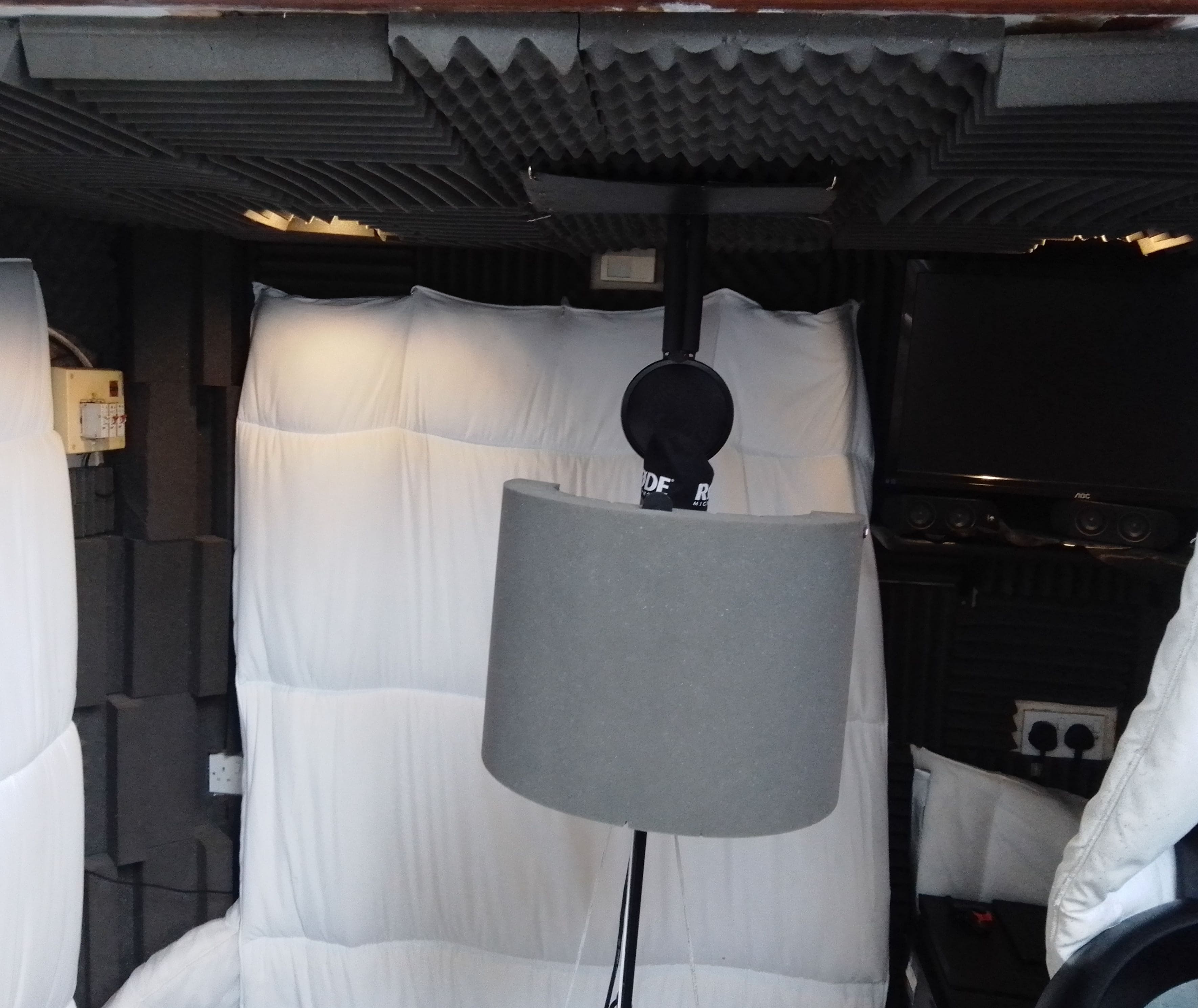 Finally, environmental noise is the bane of the independent actor. Rain, wind, traffic, construction, unruly neighbours and birds may well drive you to despair as well as ruin your recordings. I recommend working in the evenings when it's typically quieter. 3) HARDWARE / SOFTWARE It would be strange to go to such time and expense if you use a PC with a turbine for a fan. Laptops are typically quieter machines and less intrusive on your recordings. Provided you can mount one hands-free, consider a tablet like the Kindle Fire for reading lines, as it's relatively inexpensive, eco-friendly compared to paper prints, and serves other functions outside of voice acting. Regularly save your files to a secure cloud service like OneDrive or Google Drive to avoid losing progress, and to conveniently share your final work with clients over the cloud. Audacity is excellent free software that meets the needs of most voice actors, but make sure to tune the gain levels on your preamp to suit your voice's volume in any given situation. For example, low or whispered lines require a higher gain to capture fine details, while combat shouts require a lower gain to avoid clipping. Clipping occurs when the waveform exceeds maximum decibels, which can ruin your recording. While Audacity's "Clip Fix" function can repair some 'peaking', full-on clipping is beyond repair and must be re-recorded. Also, provide the client with approximately 10 seconds of ambient studio recording so their sound engineers can perform accurate noise removal in post. Your XLR and USB cables will fail eventually. Ensure you always have spares to hand; there are few situations more stressful to a voice actor than a faulty cable with a looming deadline. Additionally, consider investing in a dehumidifier if you live in a particularly damp area like me. Condensation on the microphone can ruin your entire recording, but placing your mic, preamp, cables, and pop filter on top of or adjacent to a dehumidifier for an hour can alleviate the problem. Dehumidifying your equipment weekly can prevent this issue from recurring. 4) FINANCES By now, you might have intuited that establishing yourself as an independent voice actor requires a substantial amount of capital. My recording environment (foam, duvets and carpet) cost ~£350, but I was fortunate to have an existing outbuilding in my back garden that was perfect for my needs. There is every chance you may have to spend more to create a semi-permanent studio in a garage or basement. A professional booth is prohibitively expensive for a beginner. In addition, I spent £300 on a microphone and preamp, and about £600 on a laptop and tablet. Starting from scratch, you might be looking at a £1300 ($1600) expenditure or more, which may take years to pay for itself. Develop a strategy to mitigate these costs beforehand, and be sure to include all relevant expenses on your annual self-assessment if you meet the tax threshold. 5) PERFORMANCE I emphasise above that the bedrock of any performance (and career) is will. If you just dabble for a bit of fun, fine. If you are struggling financially, I certainly sympathise. However, without perseverance, commitment and yes, the cash to start up, you won't get far... though if you have followed steps 1-4, then it is clear you have all that. I find working in low light and even closing my eyes as I speak helps get me in the mood. You don’t just voice act with your voice; hands, body movement, posture, centre of energy- all contribute to a believable, dynamic performance, so stand up if possible. Internalise your character, reflect on the story's themes and how the characters attract and oppose one another. Read all of the script first and memorise what you can; you don't want to sound like you're reading off a page. Acting is a cerebral art, where conscientiousness is equally important as natural flair. You don’t just “do” a voice - you develop one. Before you can be more theatrical or archetypal in a role, your goal should be to create a natural, believable sound grounded in reality. Unless you specifically aren't (like a robot or a monster), you are still portraying a human being. Fledgling actors get ahead of themselves on this, perhaps owing to nervous energy or trying too hard to impress, which explains that exaggerated yet self-conscious vibe. Take this thought experiment: you're having a lively conversation with a loved one, a friend, your boss, whoever - but unbeknownst to you, there is a secret microphone in the room recording everything you say. This is then played back to an unknown third party, who is told it is actually two actors in a movie, or a visual novel. They'd think it was some of the best voice acting they had ever heard! So, my most important piece of advice for an actor is "lose yourself"! Self-awareness is the biggest obstacle to your best work. If you're recording in a shared apartment with a cheap desktop microphone, hanging out of a wardrobe as the traffic whizzes by... you're off to a bad start. Are you sufficiently immersed in your environment that you would be comfortable in screaming if a client asked? Then there are no limits to your performance other than your talent. 6) VOCAL RANGE A key distinction between a screen actor and a voice actor, is range. Unless you have one hell of a natural voice, you cannot afford to operate in a narrow range. Take the example of Elias Toufexis, who is most famous for playing Adam Jensen in the Deus Ex series of games. He has a very distinctive, whispery voice which many gamers would recognise instantly. Problem is, it is so distinctive that it cost him work. It goes without saying then that range is not only your best defence against being typecast, it improves your chances of booking any given role. If you can competently perform a variety of accents, age groups, and if you can harness the skill of voice placement (i.e. where the sound resonates in the body, such as the chest, head or throat), then that versatility will give you an edge over an actor with only one string to their bow. Explore the outermost limits of your voice, and put the hard hours in to achieve that. Above, veteran actors David Deboy and Elisabeth Noone speak to the challenge of finding one's range, especially when performing multiple roles in the same project. In Ghost Song I played several characters and found myself rebounding from one archetype to the next. Saymund is a wistful, smooth-voiced Thespian type pronouncing from the chest. Hector is an old American bounty hunter with fried vocal cords. The Outlier is a nasally, sarcastic Mancunian. Bill has a softly spoken Southern drawl. There is a pattern: each is distinct through the exploration of accent, tone, character motivation, the vocal origins within the body, and even physical attributes such as body shape and centre of gravity. 7) LIVE DIRECTION AND SELF-DIRECTION There is a big difference between voice acting live with a client or casting director at an agreed time, and "self-direction", where you go away and produce the goods before an agreed deadline. From my 2024 interview with Seasoned Gaming: I find live direction to be more challenging, but that could be because relatively little of my experience has come out of it. Others might thrive on the pressure of a live performance with an audience, and balk at the additional requirements of self-direction, whereas I am in my element. There is no self-consciousness, no one listening… or judging. There are the demands of a deadline sure, but you can work through it as and when you are in the mood.To expand, what I call "modifiers" are aspects of a performance that take the sound further away from your natural voice. An accent, a tic, a rasp, a pitch - the more modifiers you add, the harder your performance is to achieve. Consider this prior to a live performance especially, as these modifiers would be easier to maintain when self-directing in your own time. Remember, even if 90% of your recording is garbage, the 10% that isn't is what counts. That is the advantage afforded over live performers, so don’t feel paralysed by actor's block. Just do it! I would add that live, some of the creative choice is taken away from you. That is perfectly normal; after all, what else is live direction if not to have your performance directed in real time? While it can be frustrating to have certain ideas scotched, respect the collaborative nature of live direction, and that it is for the purpose of producing your most optimal work. You will require conferencing software to communicate with the client / director. Skype or Zoom are good, as is Discord. Ensure the recording source on the software is the microphone with which you are recording the takes, so the client has the best representation of your work in real time. I have developed bizarre and untimely technical issues in more live sessions than I care to admit, which has taught me the importance of spares: spare cables, spare relevant software on your phone - even a spare laptop may be necessary. Going in prepared unburdens the mind. 8) POST-PRODUCTION You may be able to turn ‘raw’ recordings over to the client after a live directed session, but often you will be need to perform some post- production even if it's just trimming the recording down to the takes. How much time you're willing to put in is up to you. Unless instructed not to by the client, blending the best parts of multiple takes together can yield excellent results, albeit a time sink. Likewise, adding a little bass and treble can give your work more body and clarity. I normally perform between three takes (known in the industry as "ABCs") and six. Mouth clicks are a common issue, often occurring a split-second before or after speaking, or around certain hard consonants like K's. These can be fixed with Audacity's "Cross fade Clips" or "Repair" tools. By amplifying the waveform by 20-30db, one can visibly locate the clicks. Lower the PC's volume before listening at this amplification as it is harsh on the ears. While there is software available that can automatically de-click, I cannot vouch for their results. To minimise clicks during recording, keep your lips separated before speaking, particularly if your mouth is dry from caffeinated drinks etc, but in turn do not overhydrate just before, which can have a similar effect. I find brushing one's teeth is helpful (and good for oral hygiene). 9) DEMO REEL Your demo reel is your chance to showcase your talent and range, as well as the calibre of your previous projects. I read clients make up their minds inside the first ten seconds of a reel, so front-load your best work. A general portfolio reel should not be much longer than 90 seconds and feature a variety of drama, comedy, accents, and tone. So, avoid lengthy transitions between segments, and "slating" (starting with an introduction). Avoid samples that have been heavily stylised in post-production as it does not represent your natural performance. While a general reel is suitable for your website, it may not be precise enough for any given project. If you are auditioning for Hamlet, your zany anime voice is not only wildly inappropriate, it communicates to the client you couldn't be bothered to tailor your application to their requirements. Likewise, if you are auditioning for Fullmetal Gundam Dragon Ball X, then your restrained dramatic reads may lack the necessary 'oomph'. If you are auditioning for an American character, drop non-American samples. Have multiple reels with their own themes. For software, free programs like Audacity and Shotcut do the basics just as well as more expensive options. Host your reel on Vimeo to exploit the Replace Video feature, which allows you to update your reel without losing views, likes, comments, or the hyperlink. Clients are more impressed by actual stills from the project than a mock-up involving still images. Update your reel regularly; relying on work from several years ago suggests you have done little of note more recently. 10) FROM SMALL BEGINNINGS So, you've taken on board what I have said and feel ready to conquer the world. Where to begin? The answer for most will be unpaid work, by which I mean mods in video games. Maybe not the most glamorous ticket in town, but it is an excellent environment in which to cut your teeth, and figure out if this thing really is for you. Consider it real world experience. It's where I started, as well as many in the above livestream. In the modding community, you will find people who embrace you - if you play ball and do not presume to know best. You will receive feedback, patience and encouragement. Unlike professional work, you won't face the pressures of tight deadlines and a higher demand of quality. You will be free to explore your limits in a more relaxed environment. Because once you graduate from the shallow end, don't expect the industry to take prisoners. Nothing stings like your hard work being ridiculed by a game journalist for the first time, so you will need a bearing of your ability by this point - and a thick skin. Stick with the process, learn from your mistakes and be open to constructive criticism. CHANGE LOG (25/04/21) Initial submission. (16/02/22) Condensation note added. (07/03/22) Demo Reel note added. (26/03/23) Text made more concise. (02/04/23) Photo of my studio added. (09/05/23) Videos from Voiceapalooza 2023 added; "From Small Beginnings" and "Finances" sections added; extra content elsewhere. (30/05/23) Cable replacement noted in "Hardware / Software". (11/03/24) "Live direction and self-direction" section added. (04/06/2025) "Vocal Range" section added. (16/07/2025) Studio photo updated. |
|||||||||||||||||